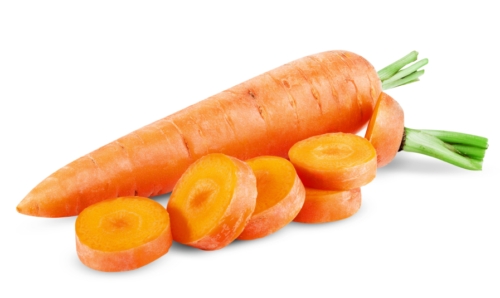
A new study from the February edition of the American Journal of Clinical Nutrition has sent the cancer-conscious scrambling for carrots. This is because the study, as reported by other outlets, shows that beta-carotene—the pigment that’s found in carrots, red peppers, mangoes, and other fruits and vegetables—may cut the risk of estrogen-negative breast cancers by “up to 60%”. While these findings are important and their results may make your inner rabbit happy, they aren’t quite as cut-and-dry as some reporting may have you believe.
The study looked at a total of around 3,000 women, half with breast cancer, and half without (the control group). Blood samples from the participants were taken and analyzed for a whole host of different nutrients, including beta carotene and vitamin C. The numbers were then crunched to see what nutrients were or were not associated with what kinds of breast cancer.
Among one group, the levels of beta carotene seemed to correlate to a reduced risk of what are termed “estrogen-receptor negative breast cancer”. This is a subtype of breast cancer that lacks estrogen hormone receptors. The other nutrients examined did not show a connection to ER-negative tumors, and none of the nutrients analyzed seemed to have an effect on ER-positive tumors.
It remains unclear where the 60% figure was drawn from, as the study’s conclusion only notes that “Our results indicate that higher concentrations of plasma β-carotene and α-carotene are associated with lower breast cancer risk of ER− tumors.”
Around 70% of breast cancers are ER-positive, meaning that the tumors have estrogen receptors and can grow in response to the hormone. As a result, ER-positive tumors can be treated in part with hormone-blocking therapies to restrict their growth. ER-negative tumors are considered harder to treat since they will grow even in the absence of estrogen.
Women in the U.S. have around a 12.4% chance of developing breast cancer during their lives. Of this number, around 30% will develop ER-negative tumors, making a woman’s risk of developing this specific type of cancer at some point in their lives around 3.72%. If it is assumed that the generous 60% reduction is true, this means that the actual reduction in breast cancer risk is around 2.2%.
This requires, of course, that the associated reduction in ER-negative breast cancer translates into a reduced overall risk, as opposed to that single type. It is possible, for instance, that beta-carotene only affects how likely it is that a breast tumor lacks estrogen receptors but does not influence how likely a tumor is in the first place.
Sources:
Bakker, M. F., et. al. “Plasma Carotenoids, Vitamin C, Tocopherols, and Retinol and the Risk of Breast Cancer in the European Prospective Investigation into Cancer and Nutrition Cohort,” American Journal of Clinical Nutrition 103, no. 2 (February 20, 2016): 454-64. Accessed February 25, 2016. http://ajcn.nutrition.org/content/103/2/454.abstract.
“Receptors for Breast Cancer,” MacMillan Cancer Support web site; http://www.macmillan.org.uk/information-and-support/breast-cancer/treating/treatment-decisions/Understanding-your-diagnosis/receptors-for-breast-cancer.html, last accessed February 25, 2016.
“Breast Cancer Risk in American Women,” National Cancer Institute web site; http://www.cancer.gov/types/breast/risk-fact-sheet, last accessed February 25, 2016.













